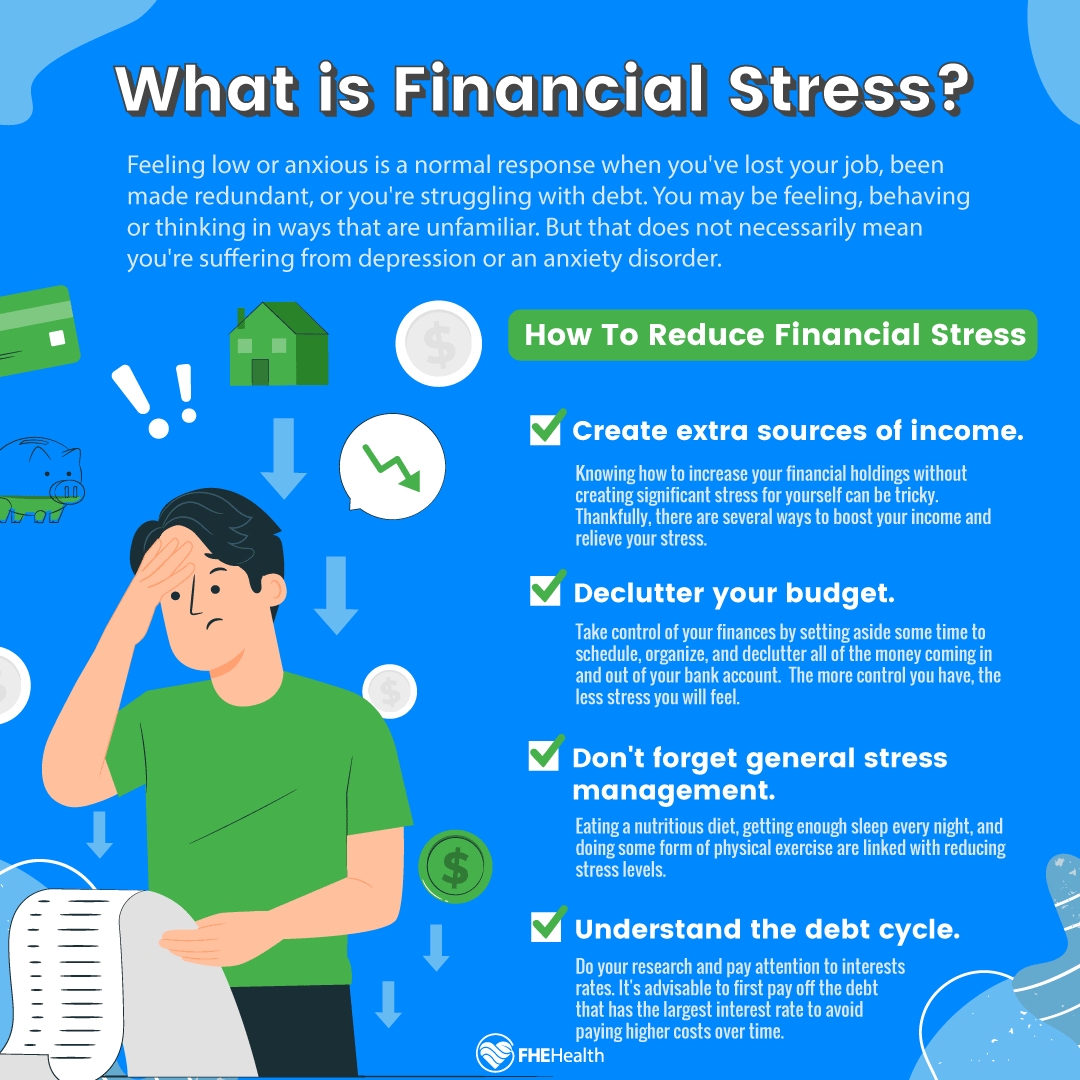The Connection Between Stress and Depression
Stress and depression are two common mental health issues that often go hand in hand. While stress is a normal response to challenging situations, prolonged or excessive stress can lead to depression. Understanding the relationship between stress and depression is crucial for managing these conditions effectively.
Stress: The Precursor to Depression
Stress is the body’s natural reaction to demands or pressures. In small doses, stress can be beneficial, motivating us to take action and overcome obstacles. However, chronic stress can have detrimental effects on both our physical and mental well-being. When stress becomes overwhelming and persistent, it can increase the risk of developing depression.
How Stress Contributes to Depression
Prolonged stress can disrupt the balance of neurotransmitters in the brain, such as serotonin and dopamine, which play a crucial role in regulating mood. This imbalance can contribute to the onset of depressive symptoms. Additionally, chronic stress can weaken the immune system, making individuals more vulnerable to developing mental health disorders like depression.
Managing Stress to Prevent Depression
Recognizing and addressing sources of stress is essential for preventing its progression into depression. Healthy coping mechanisms such as regular exercise, mindfulness practices, adequate sleep, and seeking social support can help mitigate the impact of stress on mental health.
Seeking Help for Stress and Depression
If you are experiencing persistent feelings of stress or symptoms of depression, it is important to seek professional help. Mental health professionals can provide guidance, support, and treatment options to help you manage your symptoms effectively.
In conclusion, understanding the relationship between stress and depression is key to maintaining good mental health. By addressing sources of stress early on and seeking appropriate support when needed, individuals can reduce their risk of developing depression and improve their overall well-being.
5 Positive Outcomes of Navigating Stress and Depression
- Increased awareness
- Improved resilience
- Enhanced empathy
- Opportunity for growth
- Stronger support networks
The Hidden Costs of Stress and Depression: Health, Sleep, Weight, and Cognitive Challenges
- Chronic stress can weaken the immune system, making individuals more susceptible to illnesses and infections.
- Prolonged stress can negatively impact sleep quality, leading to insomnia and fatigue, which can exacerbate symptoms of depression.
- High levels of stress hormones, such as cortisol, over an extended period can contribute to weight gain and other physical health issues.
- Persistent stress and depression can impair cognitive function, memory retention, and decision-making abilities.
Increased awareness
Dealing with stress and depression can actually have a positive outcome of increased awareness and a better understanding of one’s mental health. Through the process of navigating these challenges, individuals often gain valuable insights into their emotions, triggers, and coping mechanisms. This heightened self-awareness can empower individuals to recognize early warning signs, seek appropriate support, and proactively manage their mental well-being. By facing stress and depression head-on, individuals have the opportunity to develop a deeper understanding of themselves and cultivate resilience for future challenges.
Improved resilience
One significant benefit of experiencing stress and depression is the potential for improved resilience. Going through challenging and stressful situations can help individuals develop stronger coping mechanisms and resilience to face future adversities. By navigating through periods of stress and overcoming depressive episodes, individuals can learn valuable skills to better manage their emotions, adapt to change, and bounce back from setbacks with greater strength and determination. This enhanced resilience can empower individuals to face future challenges with a more positive outlook and a greater sense of self-efficacy.
Enhanced empathy
Experiencing stress and depression can lead to an unexpected positive outcome: enhanced empathy. Individuals who have gone through these mental health challenges often develop a deeper understanding and compassion for others facing similar struggles. This heightened sense of empathy allows them to connect on a more profound level, offer genuine support, and provide comfort to those in need. Ultimately, the journey through stress and depression can cultivate a greater capacity for empathy and strengthen interpersonal relationships.
Opportunity for growth
Navigating through the challenges of stress and depression can present a unique opportunity for personal growth and self-discovery. By learning to manage these mental health issues effectively, individuals can develop resilience, self-awareness, and coping strategies that not only help them overcome current difficulties but also empower them to face future challenges with strength and adaptability. This journey of self-discovery can lead to a deeper understanding of oneself, one’s values, and one’s priorities, ultimately fostering personal growth and a sense of inner strength.
Stronger support networks
Seeking help for stress and depression can have a positive impact on relationships, leading to the development of stronger support networks. By reaching out for assistance, individuals not only receive professional guidance but also open up opportunities for deeper connections with friends, family, or support groups. Sharing experiences and emotions related to stress and depression can foster empathy, understanding, and mutual support within these relationships, creating a supportive network that plays a crucial role in one’s mental health journey.
Chronic stress can weaken the immune system, making individuals more susceptible to illnesses and infections.
Chronic stress can have a significant negative impact on the immune system, leaving individuals more vulnerable to a range of illnesses and infections. When the body is constantly in a state of stress, the immune system’s ability to defend against pathogens is compromised, making it easier for viruses and bacteria to take hold. This increased susceptibility to illnesses further exacerbates the physical and mental toll that chronic stress can have on an individual’s overall health and well-being.
Prolonged stress can negatively impact sleep quality, leading to insomnia and fatigue, which can exacerbate symptoms of depression.
Prolonged stress can have a detrimental effect on sleep quality, often resulting in insomnia and fatigue. The cycle of poor sleep caused by stress can further exacerbate symptoms of depression, creating a vicious cycle that impacts both mental and physical well-being. When individuals struggle to get adequate rest due to stress-related factors, their ability to cope with daily challenges diminishes, making it harder to manage feelings of sadness and hopelessness associated with depression. It is crucial to address stress levels and prioritize healthy sleep habits to break this harmful cycle and improve overall mental health.
High levels of stress hormones, such as cortisol, over an extended period can contribute to weight gain and other physical health issues.
High levels of stress hormones, such as cortisol, over an extended period can have detrimental effects on physical health. Cortisol, often referred to as the “stress hormone,” plays a role in regulating metabolism and energy balance. When cortisol levels remain elevated due to chronic stress, it can lead to increased appetite, cravings for unhealthy foods, and ultimately weight gain. Additionally, prolonged exposure to high levels of cortisol can impact other bodily functions, such as immune response and cardiovascular health, increasing the risk of developing various physical health issues. Managing stress is not only crucial for mental well-being but also for maintaining overall physical health and preventing associated complications.
Persistent stress and depression can impair cognitive function, memory retention, and decision-making abilities.
Persistent stress and depression can have a detrimental impact on cognitive function, memory retention, and decision-making abilities. When individuals are constantly under stress or struggling with depression, their ability to focus, concentrate, and process information effectively can be significantly compromised. This can lead to difficulties in remembering important details, making sound decisions, and solving problems efficiently. The cognitive impairments resulting from prolonged stress and depression can further exacerbate the challenges individuals face in their daily lives, affecting their overall quality of life and well-being.



